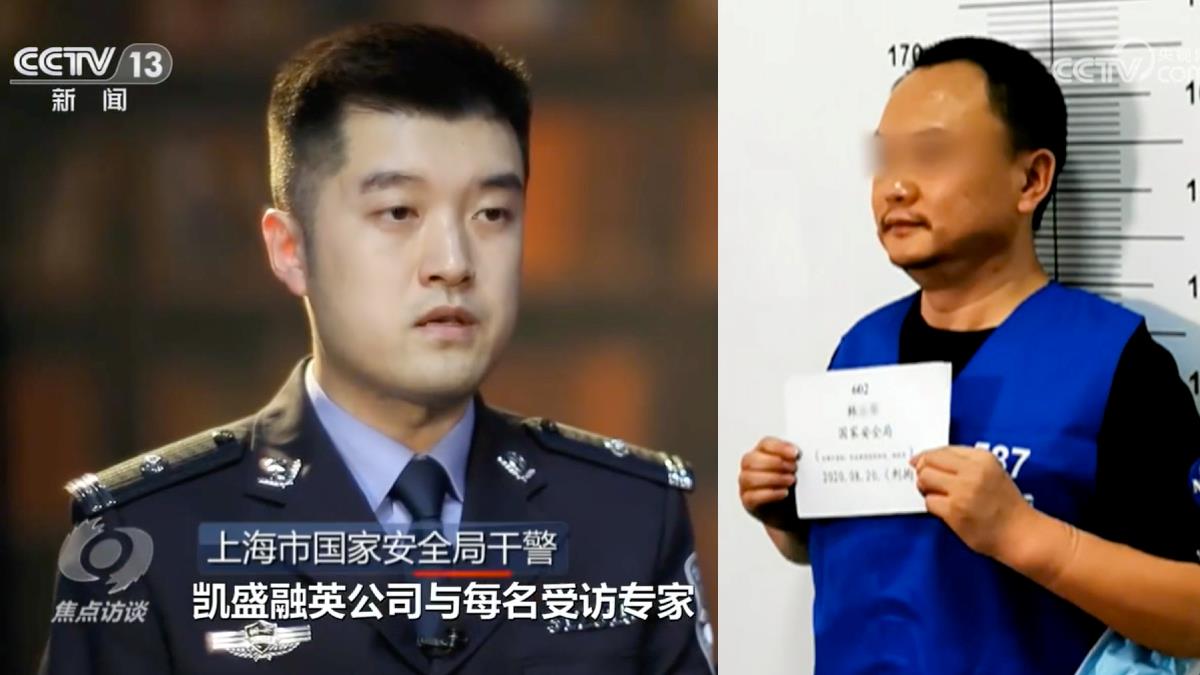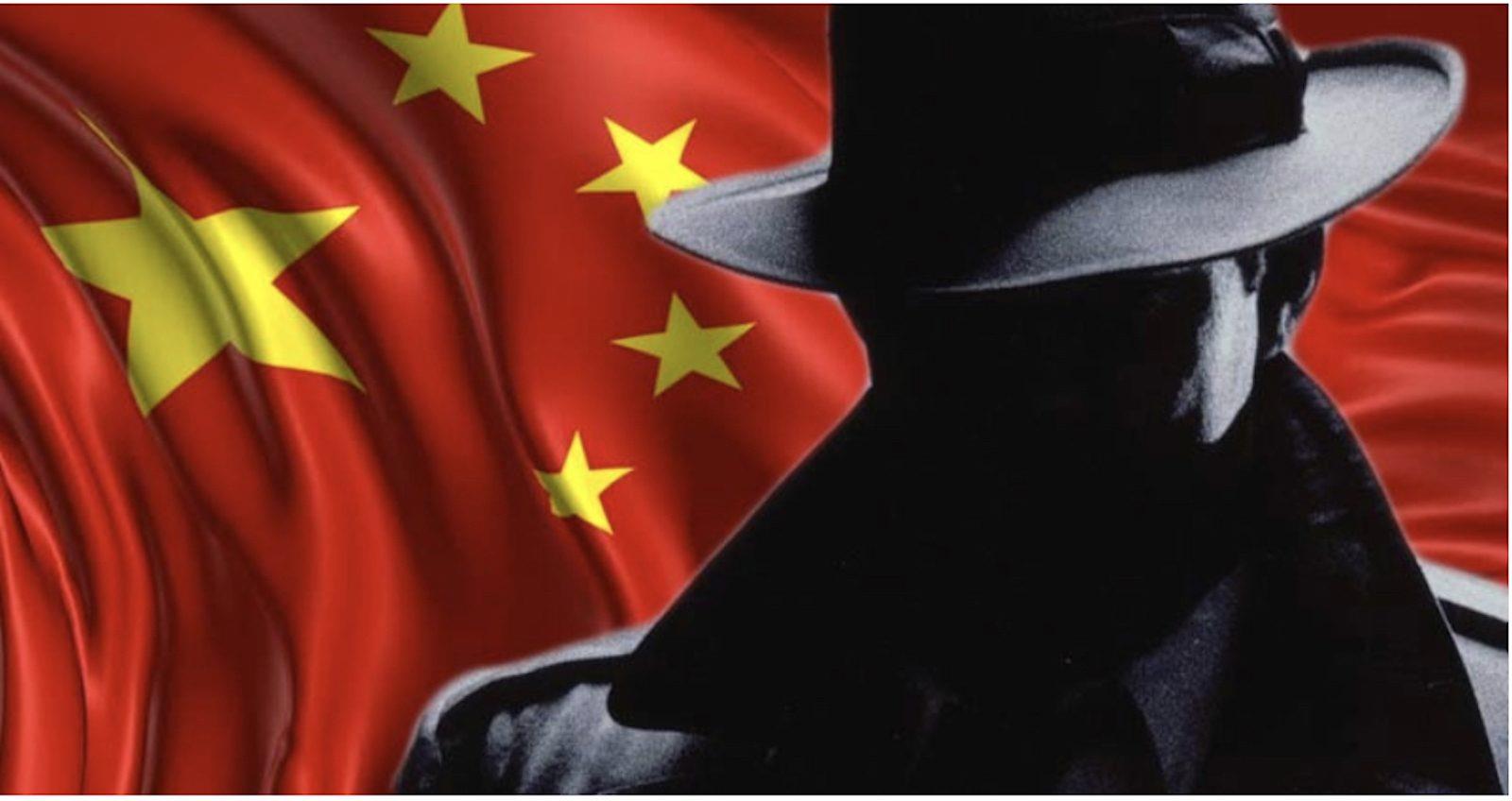(MENAFN- Asia Times) Chinese national security authorities have accused a local consulting firm of allowing overseas clients to access perceived as sensitive information from government and state-owned-enterprise employees.
The Suzhou office of the Shanghai-based Capvision Partners was raided by national security officers in a recent operation, according to china central television (CCTV) and Chinese state broadcaster Jiangsu Television.
Capvision was set up in 2008 by ex-Bain consultants and Morgan Stanley bankers, according to news reports. It offers consulting services to more than 2,000 clients with headquarters in Shanghai and New York, according to the firm's website.
In one case, a senior analyst surnamed Han, who worked for a large SOE, was jailed for six years because he allegedly sold 5,000 confidential documents to an overseas client via Capvision.
CICC Capital, a unit of Chinese investment bank CICC, has stopped using Capvision's services in the wake of the crackdown, Reuters reported on Wednesday, citing three unnamed sources.
The move against Capvision follows a recent probe into US consultancy Bain & Company's office in China and the March detention of Chinese staff at US firm Mintz Group.
Western investors often hire industry experts or consultants to help analyze businesses in which they are considering to invest. Such due diligence often provides extra information for potential investors to make more accurate growth, returns and risk forecasts.
In China, however, the consulting sector is still relatively new and insufficiently regulated. With the Capvision clampdown, it appears Beijing now wants consulting firms to serve more as gatekeepers for monitoring rather than informing their clients and experts, and to help prevent the leakage of perceived as sensitive SOE and government information.
The Capvision case was announced after the National People's Congress standing committee on April 26 passed an amendment bill to strengthen China's counterespionage law, which now covers the theft of not only“state secrets and intelligence,” but also“other documents, data, materials and items related to national security and interests.”

A national security officer says a man surnamed Han (right) was jailed for six years due to theft of state secrets. Photo: screengrabs, CCTV
The definition of offenders will be expanded from people who“join or accept tasks from” an espionage organization to those who“take refuge in” such an organization. The amended law, which gives Chinese authorities more powers to forcibly search belongings or request data of individuals suspected of spying, will take effect on July 1.
“In recent years, some Western countries have become increasingly rampant in stealing intelligence and information activities in key areas such as our country's military industry, economy and finance,” CCTV news anchor Hou Feng said in a report.
“Many overseas institutions with complex backgrounds have hidden their identities and used domestic consulting companies to steal state secrets and intelligence in key sensitive industries in an attempt to bypass our laws and regulations,” state media reporter Hou said.
“Some domestic consulting firms have weak awareness of national security, and try to make money by frequently walking on the edge of the law,” the journalist added.
Capvision has more than 1,000 clients and 300,000 experts and generates 80% of its revenue by connecting them over the phone, according to a national security agent quoted in reports.
These experts come from different sectors including national defense, military, finance, technology, energy, pharmaceutical and health. The experts are reportedly required to sign disclaimers to confirm that they will accept all legal responsibility for providing information requested by clients.
Han, the SOE employee who was convicted for stealing state secrets, said in the CCTV report that he had initially refused to tell a client about a product's cost, margin and profit but then he was offered double their initially agreed fees to disclose the figures.
Han says he had told Capvision that he would only talk to local clients but then he discovered that 60% of inquiries he handled were from overseas clients. He says he later downloaded and sold 5,000 documents, including what the report said were three pieces of state secrets, 13 intelligence documents and 18 commercially confidential documents.
A man surnamed Lei, who worked for a Chinese military industry firm, said in the CCTV report that in July 2020 he did not receive any warning from Capvision when he was asked by a client in 2015 about the fleet size of a Chinese warplane. He says he then disclosed a large amount of sensitive information to the client.
The CCTV report says Capvision received a total of US$70 million from more than 100 overseas firms between 2017 and 2020. The television network says China's national security department has recently started looking into some other cases.
On May 10, the Beijing Business Today published an article titled“Capvision blocked its own listing plan.”
Xu Rujie, founder of Capvision, directly owns a 28.65% stake in the company. It said before setting up the firm in 2008, Xu had managerial positions at China Resources (Holdings), Siemens (China) and General Motors (China) Investment Co Ltd.
The Beijing Business Today report said Capvision had failed to go public in the A-share market in 2020 and Hong Kong market in 2021 and 2022, and would probably be unable to push forward an initial public offering in the short term due to the ongoing investigation.
According to its listing prospectus, Capvision received 597 million yuan ($86 million) from its clients and paid Chinese experts a total of 195 million yuan during the first nine months of 2021. On average, an expert receives a fee of 1,456 yuan per hour.
Liu Shengyu, a partner of Gaohe Investment Management, says the investigation of Capvision has raised alarms across the entire consulting sector.
However, Eric Zheng, president of the American Chamber of Commerce, said on May 9 that many foreign companies are worried by the tightening rules in the consulting sector as many of them need to hire due diligence firms to obtain data to do business in China.

China fears there are more Western spies in its midst. Image: Facebook
Zheng said the Chinese authorities should more clearly delineate the areas in which companies can or cannot conduct such due diligence.
Jorge Toledo Albinana, the European Union's ambassador to China, said the latest news on crackdowns on consultancies is not good news” for those who expected the Chinese economy to further open up after the government ended its“zero Covid” approach last December.
The investigation of Capvision is consistent with Chinese laws that aim to promote sound and well-regulated growth of the consulting sector and safeguard national security and development interests, Wang Wenbin, a spokesperson of the Chinese foreign ministry, said on May 9.
read: us envoy worries about china anti-spy law overreach
Follow Jeff Pao on Twitter at
@jeffpao3
Like this:Like Loading...